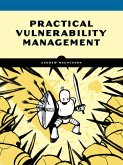Despite the multitude of hacking challenges and training opportunities on various platforms, there is a lack of targeted exercises and learning materials geared towards penetration testing of IoT devices. In particular, the important aspects of IoT hacking, such as examining hardware and recording and analyzing common wireless protocols in the IoT area such as WLAN and Bluetooth, are often neglected.This master's thesis focuses on the development and evaluation of Internet of Things (IoT) hacking challenges designed for entry-level penetration testing of IoT devices in the IoT lab at Hagenberg University of Applied Sciences. The aim of the work is to promote and improve students' understanding and skills in penetration testing of IoT devices.As part of the work, various challenges were developed that cover different aspects of penetration testing of IoT devices. Each challenge is designed to highlight realistic security issues and vulnerabilities in IoT systems, with the aim of providing both theoretical knowledge and practical skills.
Bitte wählen Sie Ihr Anliegen aus.
Rechnungen
Retourenschein anfordern
Bestellstatus
Storno








